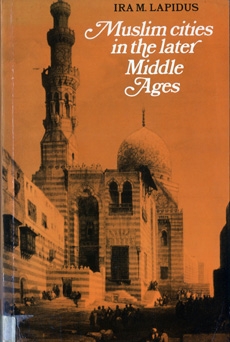
Muslim Cities in the Later middle Ages
Ira M. Lapidus
Cambridge University
Muslim cities in the later Middle Ages is one of the most influential works of recent years in the field of Islamic history.
Primarily a study of the main cities of the Mamluk state of the fourteenth and fifteenth centuries AD, Professor Lapidus’ book serves to provide a framework for understanding the long evolution of Muslim political and social institutions and urban societies. The relationships between military rulers, the bourgeoisie and the common people are presented in a study of wide relevance to social history.
For this Cambridge edition the author has written a new introduction, and has added an up-to-date section on further reading. The notes and detailed references of the first edition have been omitted.
‘This book must be greeted as a major event in scholarship pertaining to the Muslim world. ... an astounding wealth of infor mation, observations and ideas … here is not merely a contribution to scholarship, but a step forward in knowledge.’ Journal of the American Oriental Society | 